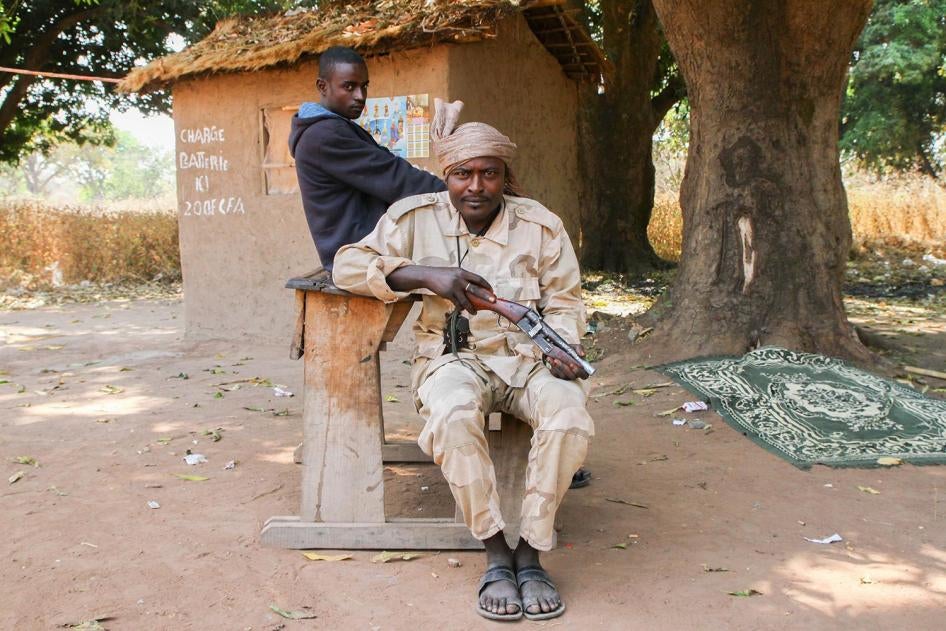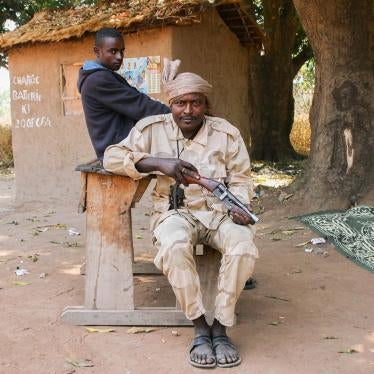In the Central African Republic, thousands of children are losing their chance to get an education because of the country’s armed conflict. Namibia can help the children there and in many other countries where conflict has kept them from going to school.
Earlier this year, “Julien,” 16, told Human Rights Watch that the Seleka, mostly Muslim fighters who had ousted the previous government in the Central African Republic, had occupied his school. aid. “I’m not always afraid of the Seleka.” He said. “I can walk by them on the road, but sometimes the men outside the school shoot and we don’t know where the bullets will go.”
The looting or use of schools for military purposes by armed groups has occurred repeatedly during the past four years of war in the Central African Republic.
But the situation in the Central African Republic is not unique. One in four children in conflict zones around the world is being denied their right to an education. Schools should be safe places for children to learn and play. Yet far too often they become places of danger during wartime, and children and teachers end up caught in the crossfire.
Since 2007, national armed forces and armed groups have used schools and universities for military purposes such as bases, barracks, firing positions, armories, and detention centers in at least 29 countries.
When fighters occupy a school, they may only use a few rooms or just the schoolyard. At other times they take over the whole school, using it as barracks or to store weapons. Either way, students sharing their school with fighters can be exposed to risks such as an attack on the school, or sexual violence or forced labor at the hands of the soldiers.
Even if the soldiers don’t take over the whole school, it’s a tough choice. Students must either study alongside armed fighters or not go to school and interrupt their learning. Sometimes, even the presence of fighters near the school can cause parents to keep their children out of school because they’re afraid of what might happen.
But there is cause for hope. In 2015, several countries committed to take extra steps to protect education during armed conflict. This international commitment, known as the Safe Schools Declaration, provides support for the protection and continuation of education during wartime. By joining the declaration, countries agree to endorse and use the Guidelines for Protecting Schools and Universities from Military Use during Armed Conflict, which call for warring parties to avoid using educational buildings for military purposes or making them targets of attack. Countries also make commitments to collect data on attacks on, and military use of, schools and universities, and to investigate and prosecute violations of international law relating to schools.
To date, 64 countries have joined, including 17 African Union member countries. Indeed, the African Union’s Peace and Security Council has urged all its member countries to endorse the declaration, recognizing the importance of protecting education during armed conflict.
Angola, Botswana, South Africa, and Zambia–Namibia’s neighbors–have all endorsed the Safe Schools Declaration. Other South African Development Community members who have joined include the Democratic Republic of Congo, Madagascar, and Mozambique. Namibia should not want to be left behind.
Strong regional support would also send a message of solidarity to the Democratic Republic of Congo, where armed conflicts have damaged or destroyed countless schools, causing children to miss out on class.
Namibia recognized the impact of armed conflict on children long ago, presiding over the United Nations Security Council in 1999, when it adopted its first resolution on the targeting of children in armed conflict including the recruitment and use of child soldiers.
Namibia has a strong peacekeeping record. Namibian troops who serve as part of UN peacekeeping missions have already committed to never use schools in their operations. This is an even more stringent standard than the declaration calls for and means that supporting the international declaration should pose few challenges.
Namibia also strongly supports regional and joint training programs and sharing experiences with other countries. Countries that endorse the declaration commit to meet, share, and develop best practices for protecting education during wartime.
“These Seleka have stolen my future,” Julien told Human Rights Watch. “I want to be a teacher because I like to read. I’d like to teach that to other kids, but now I don’t know what to do.” No child should have to find themselves in Julien’s situation.
The Safe Schools Declaration aims to ensure that children can learn and go on to achieve their dreams, despite armed conflict. Namibia should endorse the Safe Schools Declaration and do its part to ensure that education can continue for all, even during times of war.









